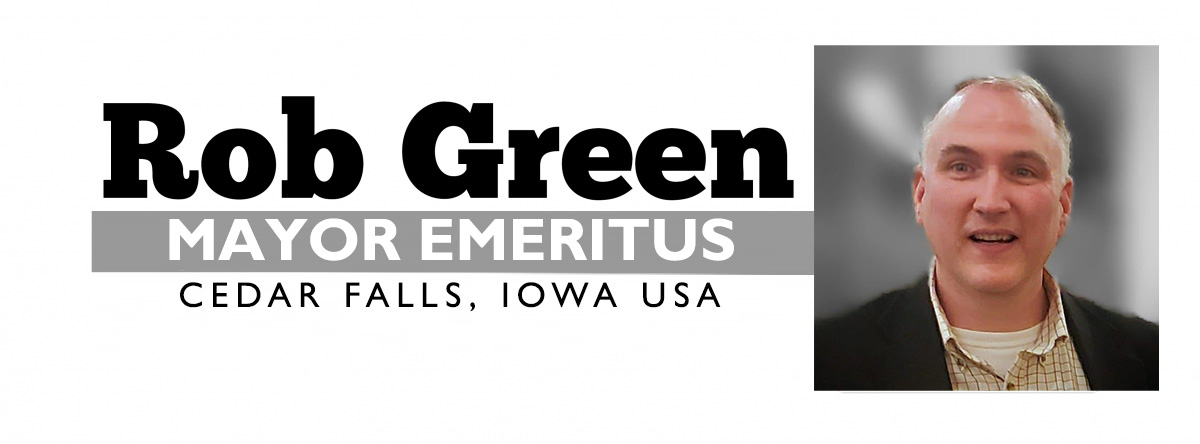
These past two weeks, I've been working as Mayor to see what tools I have in my toolbox to ensure the open At-Large seat (which I vacated when becoming mayor on January 2nd) was filled in a manner that reflected the best principles of good governance -- particularly accountablity, responsiveness, and inclusion. Coming into last night's meeting (1/20/2020) I appreciated that the majority of council wished to have a member in place to help address the "regular business of government", especially if one or two members have to miss council sessions in the weeks ahead. While it's not appropriate for me to be a decision-maker on who fills the seat (I've stayed adamantly neutral), I did want to help ensure that whoever the council selected met the council's stated desires of a 'caretaker' until a special election could be held -- rather than an activist. That led me to the idea of a 'supermajority requirement veto'.
The Supermajority Veto Idea
Like many of you, I thought the Mayor could veto any council decision. So as Council, Staff and I have been working through this appointment process, I've been weighing my options -- could (and should) I veto the decision to appoint? If not, did I still have the power to veto an individual appointment choice? I'd gone so far as to write up this statement, which I'd anticipated providing to the public and council in the council packet for last night's meeting, where we would appoint the new person:
“Given the contentious nature of this appointment process, I have decided that as Mayor, I will require a supermajority in order to seat the new council person. In our last council meeting, several members expressed an understanding that the public wants a special election, but these council members were concerned that the vacancy should be filled, in order to conduct the regular business of the council. As of today, a petition has not yet been filed by the public to require the special election. This means that whoever is appointed could realistically serve out the remaining two years of the At-Large term.
Because I believe the will of the public is to have a nominee with moderate views seated as the At Large Representative, I will exercise my veto in the event that a nominee is appointed with only four affirmative votes. This is a political decision, within my rights as the Mayor of Cedar Falls, to ensure that the council appointment process avoids the appearance of cronyism or pre-ordained decision-making.
If a 4-2 vote occurs tonight, I will issue the veto in writing to council and the city clerk within 24 hours. I will then schedule a special meeting for next Monday night, January 27th, at 7pm enabling the council to consider a motion to override my veto, if desired. If the override passes by supermajority, the new member will be sworn in immediately. If the override fails, then the remaining slate of nominees will be considered for appointment at the next regular council meeting on February 3rd.
Should this approach result in no nominee being selected by ___________, then the vote will go to the public for special election by default.”
But as it turns out, the Mayor's veto authority isn't universal. Instead, as I understand the law, the Mayor can veto resolutions, amendments and ordinances within 14 days of their passage by council...basically, any legislative action. But since appointments aren't legislative, the Mayor can't veto them. I also can't veto the approval of minutes or the receiving and filing of items, because those aren't legislative actions either. So I thought a "supermajority vote" requirement by way of a veto would've been an effective way to ensure the appointment of a person acceptable to at least 5 of the 6 remaining council member...but it simply isn't in my power to do so.
The same holds for vetoing the 1/6/2020 council decision to appoint...because that's not a legislative action, it's not in my power to veto it. I doubt I would've seriously considered it, as I believe that I must defer to council's wisdom on these matters, or the mayor would risk assuming dictator-like powers. Additionally, I considered -- what would happen if I vetoed, and it were challenged in court? What kind of weird limbo would that place our community in? The cost-benefit analysis on that was really grim.
Next Steps
I do strongly support holding a special election -- my signature is on one of the petition sheets floating out there. Because residents have often expressed to me their desire to have a greater voice in governmental decisionmaking, I believe this seat ought to be filled by special election, rather than appointment (especially given that nearly two years remain in the term). Residents need the opportunity to directly determine who will represent them on council, and I very much hope to see a 1000 signature petition in City Hall in the coming days.
I wrote this post 'for the record' and for posterity's sake, just so you can better understand my thinking. These early tricky issues provided me with a lot of practical knowledge of the Mayor's duties and powers; by sharing what I'm learning, my goal is to be as transparent and accountable as I can be. And also to help you think, "What would I do?" if you were in my shoes. Thanks for reading, and for working to be an informed and engaged resident. Keep learning!
